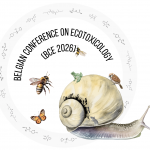The Belgian Conference in Ecotoxicology (BCE 2026) is pleased to announce its first edition, taking place at the University of Mons (UMONS), Belgium, from 28 to 30 October 2026.
Continue readingBelgian Conference on Ecotoxicology (BCE) 2026



The Belgian Conference in Ecotoxicology (BCE 2026) is pleased to announce its first edition, taking place at the University of Mons (UMONS), Belgium, from 28 to 30 October 2026.
Continue reading
In this post, Landau alumni Jochen Zubrod talks about FXMATE, their new open-access tool developed to make ecotoxicity data analysis more transparent and reproducible through an intuitive and standardized statistical workflow.
Continue reading
The Institute of Environmental Science (CML) at Leiden University is looking for an enthusiastic and highly motivated PhD-candidate who is eager to study the ecotoxicological safety of nano-embedded medicines and their degradation products.
Continue reading
Every Summer Semester, Ecotox Master students do a 2-month internship or AMEO (Applied Module at an External Organization). Today, Bailey Tock tells us about her AMEO experience in the Experimental Aquatic Unit at the Bayer Monheim campus
Continue reading
Every Summer Semester, Ecotox Master students do a 2-month internship or AMEO (Applied Module at an External Organization). Today, Vivien McGuire and Janna Schulte tell us about their AMEO experience at Fraunhofer Institute for Molecular Biology and Applied Ecology (IME), Schmallenberg.
Continue reading
The SETAC 13th Young Environmental Scientists (YES) meeting took place from the 11th to the 14th of August in York, United Kingdom. Katharina Wifling and I, Verónica Rodriguez, attended the conference to present our research. Katharina presented a poster based on her RPC, while I presented a poster on my master’s thesis.
Continue reading
Pesticides on the peaks: Alpine study made the Top 25 of 2024 in Communications Earth & Environment.
Continue reading
The Leibniz Institute for Zoo and Wildlife Research at the Forschungsverbund Berlin e.V. (Leibniz-IZW) is seeking a doctoral student to engage in the “Beyond Life Apex” project to analyse the exposure of selected top predators to organic and inorganic anthropogenic pollutants recognised as priority, as well as the development of evaluation methods for the prioritisation of chemicals and their mixtures as well as on the interpretation of the exposure data in peak predators in cooperation with the Federal Environment Agency
Continue reading
As part of the Research Alliance Ruhr, the Research Center One Health Ruhr at the University of Duisburg-Essen (UDE) on the Essen Campus, Department of Ecotoxicology, is looking for a Doctoral researcher in Theoretical Ecotoxicology/Ecotoxicological Data Science (f/m/d) (paygroup 13 TV-L, 65%)
Continue reading
Are you looking for an interesting, varied job as an ecotoxicologist in an applied research environment? Are you interested in working in a dynamic development team for applied bioassay methods? Then you’ve come to the right place! We are an established research institute and conduct applied, international research and services in the fields of ecology and ecotoxicology. To strengthen our team, we are seeking a biologist or BTA (m/f/d) to join our team as soon as possible, on a part-time basis (75%). We offer a varied field of activity in a relaxed, friendly working environment with flat hierarchies.
Continue reading